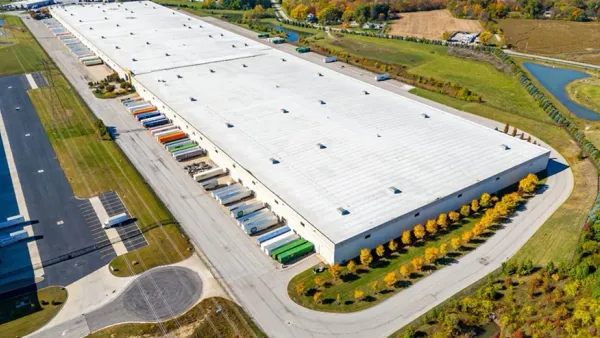Dive Brief:
- Beyond Meat's supply chain is ready for fast-food volumes, executives said on the company's first ever earnings call after the plant-based burgermaker went public last month.
- CEO Ethan Brown told analysts Friday the company can produce beyond what current forecasts require, as a result of diversifying its supplier base for key proteins in the plant-based burger and tripling production capacity since last summer.
- Burger King announced in April it would test the vegan burger in 59 locations in the St. Louis area, and Carl's Jr. has been selling the burger in 1,000 locations since January. "I don't see any material obstacle and I don't see any manufacturing obstacle to be able to ... take on many of the largest [quick serve restaurants] out there," Brown said on the call.
Dive Insight:
The CEO admitted Beyond Meat's supply chain experienced several bottlenecks in 2017 and 2018.
"It preoccupies me quite a bit," Brown said, describing past issues as learning experiences while assuring analysts he is confident they are now sorted, at least in the near term.
The company built a new production facility last year where the processing of proteins takes place. This is the first step in the process to make Beyond's patties, ground meat alternative and sausage products. The protein is then transferred to a co-packing facility for the final steps. In the last year, the company has expanded from two production facilities (including co-packers) to five.
But challenges may still crop up in the future. Beyond is in the process of moving away from its 1.0 recipe to Beyond Burger 2.0 — a new "meatier" tasting formulation with a new process. The new recipe is already rolling out to restaurants and will hit grocery shelves later this summer, said Brown.
Adding more complexity, some country regulations regarding ingredients (Brown named Canada, for one) may cause the company to tweak core recipes further, which could also lead to a "slightly lower fill rate."
"You will see some isolated incidents where maybe a bit lower than [an] otherwise very strong fill rate," said Brown.
In terms of Beyond's core raw material, pea protein, the competition to lock down supply is getting fierce as plant-based protein products gain popularity. Plant-based burger maker Lightlife bought a year's worth of peas in advance just to ensure consistent supply, Bloomberg reported, and pea-based dairy alternative company Ripple Foods is getting into agriculture to secure its core ingredient.
Brown said Beyond wants to diversify the proteins in its products to minimize dependence on just one crop.
"I'm very aggressive and thinking about that not only because I want to diversify supply chain for reasons of cost and driving down in stability etcetera," he said. "But I believe that’s what the consumer wants."














